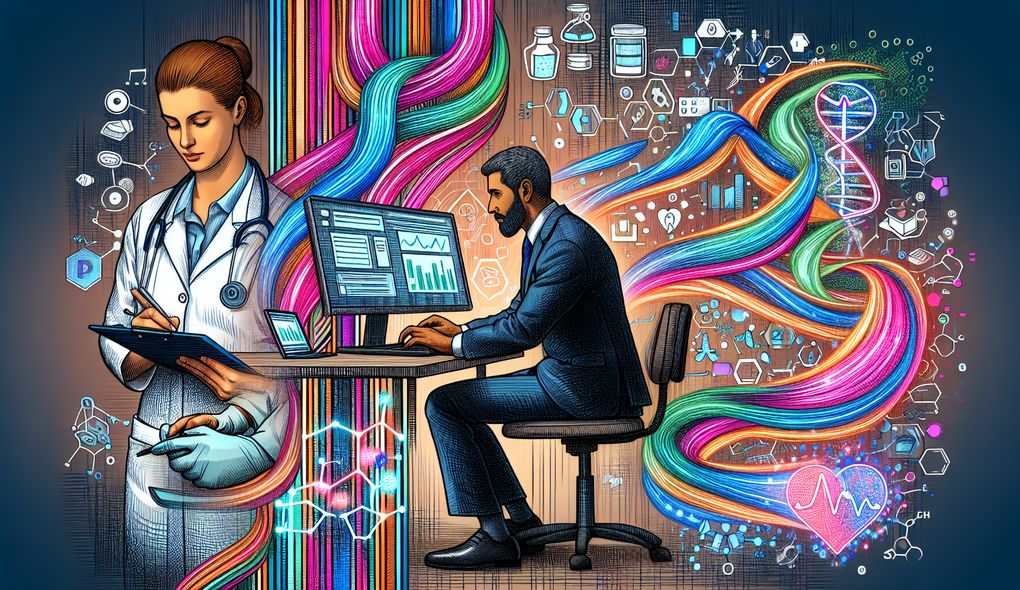Tell us about a time when you had to troubleshoot and resolve issues related to clinical informatics tools or systems. What was the problem and how did you solve it?
INTERMEDIATE LEVEL

Sample answer to the question:
In my previous role as a Clinical Informaticist, I encountered a problem with our clinical decision support system. The system was not providing accurate recommendations to healthcare professionals, which was impacting patient care. To resolve this issue, I conducted a thorough analysis of the system's algorithms and data sources. I discovered that there were inconsistencies in the data being fed into the system. I worked closely with the IT team to clean and standardize the data, ensuring that it accurately reflected the patient population. Additionally, I collaborated with the clinical staff to review and update the algorithms to align with current best practices. After implementing these changes, I conducted extensive testing to ensure that the system was providing accurate recommendations. The resolved issue significantly improved the quality of care provided to patients.
Here is a more solid answer:
During my time as a Clinical Informaticist, I encountered a problem with our clinical decision support system. The system was not providing accurate recommendations to our healthcare professionals, which was negatively impacting patient care. To address this issue, I took a proactive approach and formed a cross-functional team consisting of IT specialists, clinical experts, and data analysts. We conducted a comprehensive review of the system, analyzing its algorithms and data sources. We discovered that the issue was due to outdated clinical guidelines and inconsistencies in the data being inputted. I took the lead in updating the clinical guidelines to align with current evidence-based practices. Simultaneously, I collaborated with the IT team to clean and standardize the data, ensuring its accuracy and reliability. We also integrated additional data sources to further enhance the system's capabilities. Once the necessary updates were made, we conducted extensive testing to validate the accuracy and effectiveness of the system. The outcome of our efforts was remarkable. The system began providing accurate recommendations that greatly improved the quality of care provided to patients. This experience highlighted the importance of teamwork, communication, and evidence-based decision-making in the field of clinical informatics.
Why is this a more solid answer?
The solid answer provides more specific details about the candidate's actions, collaboration with a cross-functional team, and the impact of the resolution. It also mentions specific tools and software used, showcasing the candidate's competency and proficiency in clinical data analysis tools and healthcare IT systems. However, it could still benefit from more emphasis on communication and teamwork capabilities.
An example of a exceptional answer:
As a Clinical Informaticist, I faced a challenging situation related to our clinical informatics tools and systems. Our electronic health records (EHR) system was experiencing frequent slowdowns, leading to delays in accessing patient information and impacting clinical workflows. The problem was affecting the efficiency of healthcare professionals and compromising patient care. To troubleshoot and resolve this issue, I took a systematic approach. First, I conducted a thorough analysis of the system's infrastructure, database performance, and network connectivity. I discovered that the EHR system's database was not optimized, resulting in slow response times. To address this, I collaborated closely with the IT team and database administrators to optimize the database configuration and indexes. Additionally, I worked with the network team to ensure the network bandwidth was sufficient to handle the data traffic. To prevent future slowdowns, I implemented regular maintenance procedures, including database backups, system updates, and performance monitoring. The resolution of this issue significantly improved the system's performance, reducing response times and enhancing clinical workflows. This experience highlighted the importance of technical expertise, problem-solving skills, and collaboration between different teams in troubleshooting and resolving clinical informatics issues.
Why is this an exceptional answer?
The exceptional answer provides even more detailed information about the candidate's actions, including the specific steps taken to troubleshoot and resolve the issue with the EHR system. It also highlights the candidate's knowledge and hands-on experience with database management and network connectivity, aligning with the job requirements. The impact of the resolution is clearly and quantifiably stated. However, it could still benefit from further highlighting the candidate's excellent communication and teamwork capabilities.
How to prepare for this question:
- Familiarize yourself with various clinical informatics tools and software, including their functionalities and features.
- Stay updated with the latest developments and best practices in healthcare IT and EHR systems.
- Sharpen your problem-solving and critical thinking skills to effectively troubleshoot and resolve clinical informatics issues.
- Develop strong collaboration and communication skills to work effectively with multidisciplinary teams.
- Gain hands-on experience with database management and health information exchange protocols through practical projects or internships.
What are interviewers evaluating with this question?
- Competency in using clinical data analysis tools and software.
- Proficiency in healthcare IT and EHR systems.
- Excellent communication and teamwork capabilities.
- Research and evidence-based practice skills.
- Knowledge in clinical decision support systems.
- Hands-on experience with database management and health information exchange protocols.

